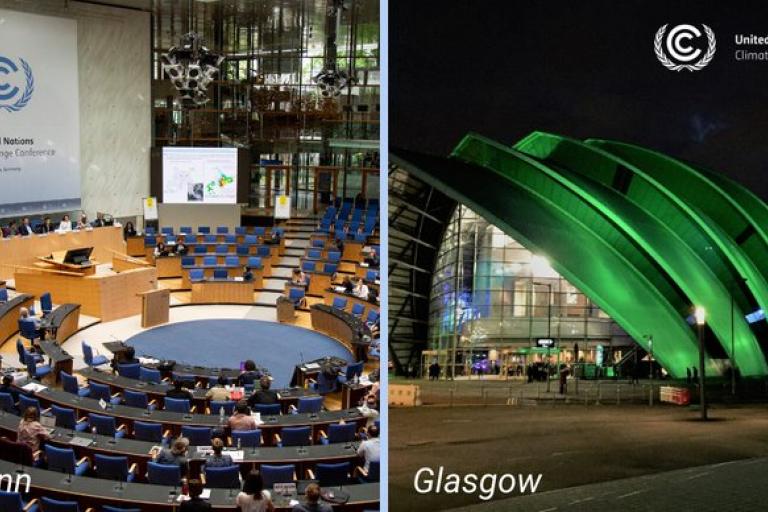COP26 is postponed because of Coronavirus pandemic

The COP26 UN climate change conference set to take place in Glasgow in November has been postponed and will be rescheduled for 2021.
In light of the ongoing, worldwide effects of COVID-19, an ambitious, inclusive COP26 in November 2020 is no longer possible, according to the decision by the COP Bureau of the United Nations Framework Convention on Climate Change, with the UK hosts and its Italian partners.
“Rescheduling will ensure all parties can focus on the issues to be discussed at this vital conference and allow more time for the necessary preparations to take place. We will continue to work with all involved to increase climate ambition, build resilience and lower emissions,” said a UNFCCC statement announcing the decision.
“The world is currently facing an unprecedented global challenge and countries are rightly focusing their efforts on saving lives and fighting COVID-19. That is why we have decided to reschedule COP26,” said COP26 President-Designate and Secretary of State for Business, Energy and Industrial Strategy Alok Sharma.
“COVID-19 is the most urgent threat facing humanity today, but we cannot forget that climate change is the biggest threat facing humanity over the long term, “ said UN Climate Change Executive Secretary Patricia Espinosa.
“Soon, economies will restart. This is a chance for nations to recover better, to include the most vulnerable in those plans, and a chance to shape the 21st century economy in ways that are clean, green, healthy, just, safe and more resilient,” she said.
COP26 is one of a number of top-profile conference which have been postponed because of the disruption caused by the Coronavirus pandemic. The World Meteorological Organization has postponed all its meetings, including various technical and policy meetings in April and the 9 to 12 June session of the WMO Executive Council. These meetings are set to be rescheduled later in 2020.
The WMO co-sponsored Intergovernmental Panel on Climate Change has also restructured its activities, but has warned that there may be serious implications for the timely completion of the IPCC’s Sixth Assessment Report.
Coronavirus does not reduce need for climate action
WMO Secretary-General Petteri Taalas has repeatedly stressed that the economic and industrial downturn as a result of the Coronavirus pandemic is not a substitute for concerted and coordinated climate action.
“Past experience suggests that greenhouse gas emission declines during economic crises are followed by a rapid upsurge. We need to change that trajectory,” said Mr Taalas.
“COVID-19 has caused a global health and economic crisis which, we hope, will be time-limited. Failure to reduce greenhouse gases and tackle climate change will have a negative impact on global economies, human living conditions and marine and land ecosystems, which may last up to centuries,” said Mr Taalas.
Carbon dioxide remains in the atmosphere and oceans for centuries. This means that the world is committed to continued climate change regardless of any temporary fall in emissions due to the Coronavirus epidemic.
Carbon dioxide levels at key observing stations have so far this year been higher than last year.
The February monthly average of atmospheric CO2 at Mauna Loa observatory in Hawaii was 414.11 parts per million, compared to 411.75 ppm in February 2019, according to the US National Oceanic and Atmospheric Administration. Mauna Loa is the world’s longest continual observing station and a benchmark station of the Global Atmosphere Watch Network.
At another benchmark station, Cape Grim in Tasmania, average CO2 levels were 408.3 ppm in February, up from 405.66 ppm in February 2019, according to CSIRO. At the Azaña observatory in Tenerife, concentrations of CO2 are also higher this year than at the same time in 2019.
The UNFCCC press release is available here.










